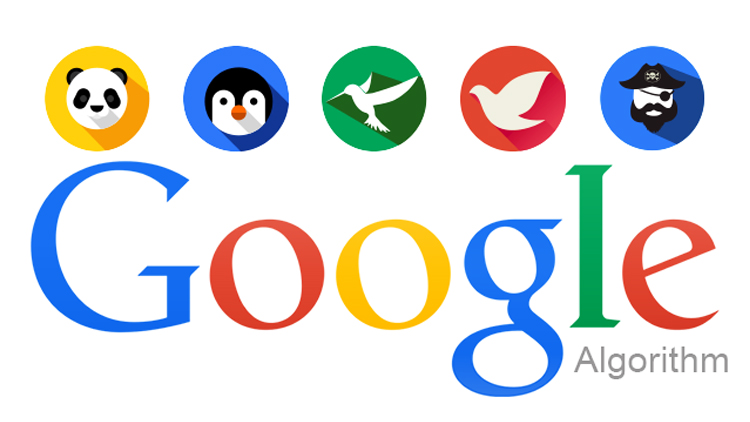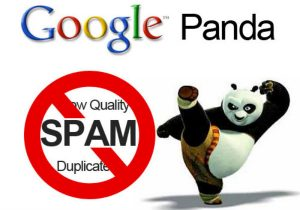
Analytica House
Eyl 3, 2022Geçmişten Günümüze Önemli Google Algoritma Güncellemeleri

Arama motorları, kullanıcılara en doğru arama sonuçlarını gösterebilmek için telif haklarıyla korunan algoritmalar geliştirir ve gizliliği korur. Arama motorlarının doğru ve anlamlı sonuçlar vermesini sağlayan en önemli faktör, algoritmalarının ne kadar doğru olduğu ve yapılan iyileştirmelerin katkısı ile ölçülür.
Google Arama Algoritması Nedir?
Google, algoritma terimini, sorunuza yanıt bulmak için çalışan bilgisayar programları olarak tanımlar.

Google, bu sonuçları optimize etmek için algoritmalarında sürekli küçük değişiklikler yapar ve büyük değişiklikleri web sitesi sahipleri ve SEO uzmanlarına sık sık duyurur.
Google güncellemeleri hakkında haber ve bilgi sağlayan web siteleri ve Twitter adresleri şunlardır:
- John Mueller
- webmasters.googleblog.com
- Google SearchLiaison
- Moz
- Rand Fishkin
- Search Engine Land
- Search Engine Roundtable
- Matt Cutts
2011 - Google Panda Güncellemesi

Daha önce içerik kalitesi düşük olmasına rağmen, web sitesi sahipleri yüksek sıralama almak için çok fazla içerik yayınlıyor ve birçok farklı web sitesinden içerik birleştirerek intihal yapıyorlardı. Google bu durumu göz ardı etmedi ve kullanıcıların bu siteler nedeniyle doğru sonuca ulaşamayacağını fark etti. Panda güncellemesinden 10 yıl geçmesine rağmen, kullanıcıya kaliteli siteleri göstermek için yapılan en önemli güncellemelerden biri olmaya devam ediyor ve düşük kaliteli siteleri olumsuz etkiliyor.
2011’deki ilk güncellemeden sonra arama sonuçlarının %12’si değişti ve hâlâ bu kayıptan etkilenen siteler bulunuyor. 2011’de etkisini ilk gösteren bu güncelleme, çeşitli düzenlemelerle halen etkisini sürdürmektedir.
Panda algoritması, on-page (sayfa içi) konulara daha fazla odaklanır ve zayıf, alakasız içerik, kopya içerik ve meta etiketlere dikkat eder. Anahtar kelime doldurma olarak da bilinen ve faydadan çok zarar getiren durum, Panda güncellemesi ile ortaya çıkmıştır.
2012 - Google Penguin Güncellemesi

Bu güncelleme ile spam ve manipülatif olarak kabul edilen düşük kaliteli ve alakasız sitelerden gelen linkler önem kazandı ve backlink kalitesi açısından önemli bir adım atıldı.
Artık backlink sayısı değil, link alınan sitenin domain değeri, sayfa değeri ve linkin alındığı kelime çok daha önemlidir; düşük kaliteli linkler faydadan çok zarar getirir. İlk kez 2012’de duyurulan Penguin güncellemesi yıllar içinde geliştirilmiş ve algoritmanın daha doğru sonuçlar vermesi için çaba gösterilmiştir.
2013 - Google Hummingbird Algoritması

Hummingbird güncellemesi, Google’ın temel arama teknolojisinde büyük bir iyileştirme yaptı ve artık kullanıcı niyetini anlamayı ve uygun sonuçlar göstermeyi amaçlıyor; yalnızca anahtar kelimeye dayalı sonuçlar sunmak yerine. Özellikle sesli aramaların artmasıyla gerekli olan bu güncelleme ile SEO dünyasında arama niyeti terimi daha sık kullanılmaya başlandı. Hummingbird algoritma güncellemesinden sonra uzun ve orta kuyruklu anahtar kelimelere verilen önem arttı.
Hedef kitlenizi tanımak ve uygun iletişim dilini kullanmak, bu güncellemeden olumsuz etkilenmenizi engeller. Meta etiketlerde ve içerikte insan diline yakın bir dil kullanmanın sıralama faktörlerinde iyileşmelere yol açabileceği de görülmüştür.
2014 - Google Pigeon Algoritması

Pigeon Algoritması, Google tarafından yerel arama algoritmasını web algoritmasına daha yakın hâle getirmek ve daha iyi hizmet sağlamak için yapılan güncellemelerden biridir. Pigeon güncellemesi ile, coğrafi konumları ele alarak arama sonuçlarını kullanıcının konumuna göre göstermeyi hedefledi. Google My Business sayfası yanlış veya eksik olan siteler bu güncellemeden etkilendi.
Yerel işletmeler, bir My Business hesabı oluşturmalı ve web sitenizdeki iletişim ve konum gibi bilgilerle eşleştiğinden emin olmalıdır.
2015 - Mobilegeddon Algoritması

Aramaların %50’den fazlasının mobil cihazlardan yapılması, Google’ın mobil uyumluluk algoritmasını ön plana çıkarmasını gerekli kıldı. Bu güncelleme ile mobil cihazların önemi arttı ve mobil uyumlu sayfaları olan siteleri üst sıralara taşırken, uyumlu olmayan sayfalarda düşüş yaşandı. Bu güncelleme yalnızca mobil aramaları etkiledi.
Mobil uyumluluk testi ile Google, sayfalarınızın mobil uyumlu olup olmadığını kontrol etmenizi istedi ve responsive tasarım önerdi. 2018’de duyurulan mobile first indexing ile, indekslemenin mobil aramalardaki durumunuza göre belirleneceği ilan edildi.
2015 - Google RankBrain Algoritması

RankBrain, makine öğrenmesi ile uyumlu bir güncellemedir ve kullanıcının yaptığı sorgularda doğru sonuçları göstermeyi amaçlar. Bu sayede kelimeler tamamlanabilir, tahmin edilebilir ve içerik sorgulara karşı analiz edilerek en alakalı sonuçlar listelenebilir.
Bu algoritma güncellemesinin odaklandığı en önemli konulardan biri kullanıcı deneyimidir. Sitenizin yüksek bounce rate’e ve düşük oturum sürelerine sahip olması, kullanıcının sonraki sorgusunun iyi sıralanma olasılığını düşürür.
Çünkü kullanıcı sorgusunun amacına göre, geçmiş verilere dayalı makine öğrenmesi yapar ve kullanıcıya konum, arama sorgusu, yaş, cinsiyet, eğitim ve önceki aramalarına göre çok daha alakalı sonuçlar göstermeyi hedefler.
2016 - Google Possum Güncellemesi

Yerel aramaları etkileyen ve arama sonuçlarını değiştiren bir güncellemedir. Possum güncellemesi ile kullanıcı konumu ve işletme konumlarına göre hedeflenmiş arama sonuçlarını gösterir. Aynı adresi paylaşan siteler, arama sonuçlarında olumsuz etkilendi. Organik aramalarda kötü listelenmiş bazı işletmeler, Possum güncellemesi ile yerel sıralamada yükselmeyi kolaylaştırdı. Bu, güncellemenin yerel aramaları organik sonuçlardan daha fazla ayrıştırdığını gösterdi.
2018 – Google Mobil Hız Güncellemesi

2018’de duyurulan bu güncelleme ile Google, mobil hızın bir sıralama faktörü olduğunu açıkladı. 2010’da Google sayfa hızının bir sıralama faktörü olduğunu belirtmişti, ancak bu yalnızca masaüstü cihaz için geçerliydi. 2018 Temmuz’da, mobil sayfalarınızın ne kadar hızlı olduğunu incelemeye başladı ve bunu mobil aramada bir sıralama faktörü olarak kullanmaya başladı. Bu güncelleme özellikle mobil sürümleri yavaş olan siteleri etkiledi.
2018 – Google Medic Core Güncellemesi

Medic Core Güncellemesi, sağlık, tıp, diyet, fitness ve tıbbi cihaz sektörlerini çok etkiledi. Bu sektörlerdeki sitelerin çoğu %30’dan fazla trafik kaybı yaşadı. Medic algoritmasına yakalanmamak için içerik, uzmanlık, yetkinlik ve güvenilirliğe göre geliştirilmelidir, Hakkımızda sayfası iyi optimize edilmeli, iletişim sayfasındaki bilgiler gerçek olmalı ve itibar yönetimi (yorumlar, basın, kullanıcı tarafından oluşturulan içerik ve basın) çok iyi uygulanmalıdır.
2019 - Google Florida 2 Güncellemesi

Kök düzeyde bir çekirdek güncellemesidir. Google, ilgili algoritmadan en çok etkilenen sitelerin YMYL siteleri olduğunu duyurdu. YMYL nedir? Eğer siteniz, kullanıcının sağlığını, mutluluğunu, güvenliğini veya finansal durumunu etkileyebilecek içerik barındırıyorsa, bu site YMYL (Your Money Your Life) olarak adlandırılır.
Bu durumun etkisiyle finans, sağlık, hukuk ve alışveriş siteleri algoritmadan en çok etkilenen siteler oldu. İçeriklerin doğruluğu daha da önemli hâle geldi.
2019 - Google BERT Güncellemesi

BERT güncellemesi, doğal dil işleme (NLP) ve makine öğrenmesi algoritması için sinir ağı tabanlı bir tekniktir. BERT terimi, “Bidirectional Encoder Representations from Transformers” (Transformers’tan Çift Yönlü Kodlayıcı Temsilleri) ifadesinin kısaltması olarak kullanılır.
BERT, Google’ın NLP teknolojisini geliştirerek, bir cümledeki kelimelerin anlamını makine öğrenmesi ile tamamen anlayabilmesini sağlar. BERT ile Google, ilgili kelimenin öncesindeki ve sonrasındaki kelimelere bakarak kelimenin tam bağlamını ortaya çıkarabilir. Böylece cümledeki tüm kelimelerin bağlamını ve birbirleriyle ilişkilerini kullanır. Bu gelişme, bir sorgunun arkasındaki niyet, anlam ve yorumlama açısından büyük bir iyileştirme temsil eder. Bu nedenle, bağlam dışı cümleler, kelimeler ve linkler daha iyi takip edilebilir.
2021 - Google Page Experience Güncellemesi

Google güncellemeleri tarihinde devrim niteliğinde bir güncellemedir. Mayıs 2021’den sonra Google, resmi olarak kullanıcı deneyimini siteleri sıralamak için bir metrik olarak değerlendirmeye başladı.
Bu güncelleme ile Search Console’daki Arama Performansı raporu, iyi veya kötü sayfa deneyimine sahip sayfaları anlamak ve filtrelemek için güncellendi.
Mobil Kullanılabilirlik: Google’da iyi sıralama almak için sayfalarda mobil kullanılabilirlik hatası olmamalıdır.
Güvenlik: Sitedeki herhangi bir sayfada güvenlik sorunu varsa, tüm sayfalar “İyi Durum”dan çıkar.
HTTPS Sertifikası: İyi bir sayfa deneyimi olarak kabul edilmek için, site SSL sertifikası ile HTTPS üzerinden sunulmalıdır.
Sayfalardaki Reklamlar: Web siteleri, kullanıcı deneyimini olumsuz etkileyen ve sayfanın çoğunu kaplayan reklam yerleşimleri uygulamamalıdır. Aksi takdirde, iyi kullanıcı deneyimi olarak kabul edilmez.
More resources

Google MMM ile Satış Artışlarını Doğru Ölçmenin 5 Yolu
Google MMM (Marketing Mix Modeling), pazarlama karması modellemesi olarak bilinen bu yöntem, çerezsi...

ChatGPT Shopping Research Nedir? Nasıl Çalışır?
ChatGPT Shopping Research, kullanıcıların alışveriş araştırmalarını hızlandıran yapay zeka destekli...

Black Friday Sonrası Sadık Müşteri Kazanmak İçin Veri Tabanlı Taktikler
Sadık müşteri kazanımı, Black Friday sonrası dönemde e-ticaretin en stratejik hedeflerinden biridi...

